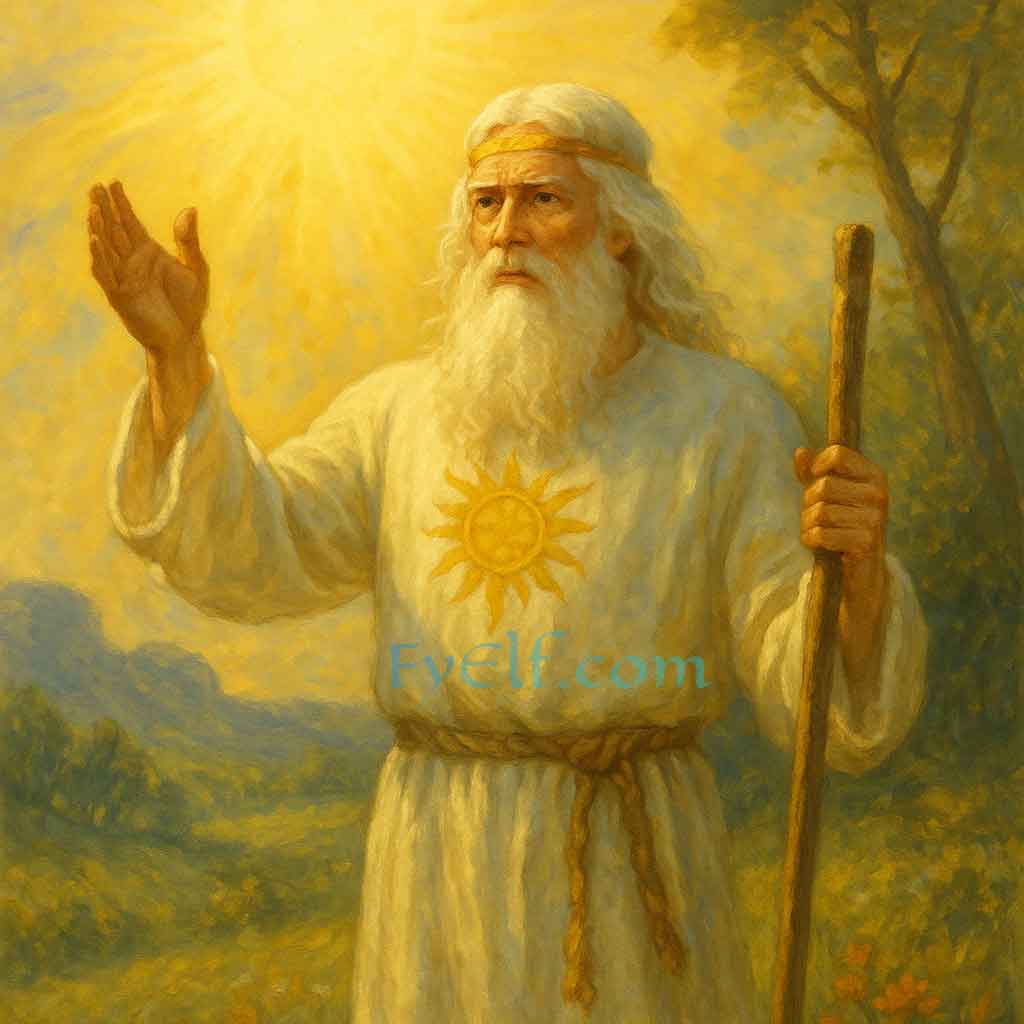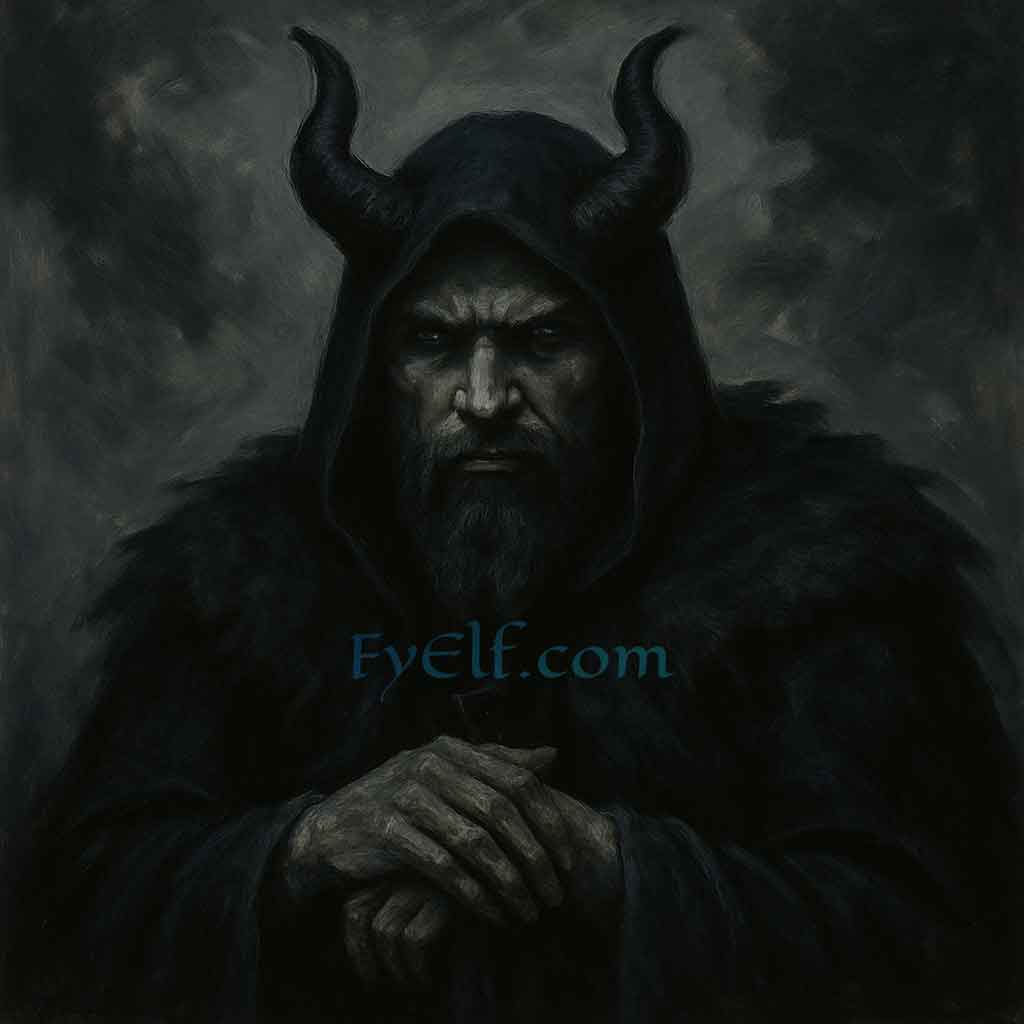Who Is Belobog in Slavic Mythology?
Belobog, often translated as the “White God,” is one of the most intriguing figures in Slavic mythology. He is commonly seen as the embodiment of light, goodness, and fortune, standing in stark contrast to his dark counterpart, Chernobog, the “Black God” of misfortune and chaos.
The very name Belobog comes from the Slavic words belyi (white) and bog (god), clearly identifying him as a divine force of purity and brightness. While direct historical evidence for Belobog is scarce, his presence in folklore and comparative mythology suggests that he represented the positive forces of nature and human destiny.
The Meaning of the Name “Belobog” – White God
In Slavic languages, white is traditionally associated with purity, goodness, and sacredness. Belobog’s name alone places him as the divine counterbalance to darkness, a force guiding humans toward prosperity, justice, and truth.
Belobog as a Symbol of Light and Goodness
Belobog is not just a deity of light in the literal sense but also a symbolic guardian of morality, blessings, and fortune. In this way, he can be compared to other Indo-European light deities such as Zeus, Baldr, or Mithra, each representing order and cosmic harmony.
Belobog vs. Chernobog – The Eternal Contrast
One of the defining features of Belobog’s mythology is his opposition to Chernobog. Together, they embody the dualism of light and darkness that runs through much of Slavic spiritual thought.

The Black God of Darkness and Misfortune
Chernobog is described in medieval chronicles as a dark and fearful god, associated with curses, suffering, and bad luck. He was believed to bring calamity and despair to those who fell under his shadow.
Duality in Slavic Beliefs: Light vs. Dark
The pairing of Belobog and Chernobog reflects a worldview where existence is seen as a balance between opposites. Belobog brings hope, order, and success, while Chernobog represents chaos, fear, and destruction. Together, they form a cosmic tension that explains the unpredictability of life.
Belobog’s Role in Slavic Folklore
While Belobog does not appear in detailed written myths like Greek or Norse gods, traces of him can be found in folk traditions, legends, and oral storytelling.
Protector of Justice and Prosperity
Belobog was often imagined as a bringer of good harvests, fair weather, and prosperity. Farmers would invoke him for protection of their crops, while households sought his blessing for peace and well-being.
Belobog as a Guide for Fortune and Blessings
In rural folklore, Belobog was sometimes said to wander the world in the form of an old man in white clothing, blessing those who lived righteously. His guidance was seen as a path toward justice, happiness, and fortune, a reminder that good deeds bring rewards.
Worship and Cultural Significance
The evidence of Belobog’s worship is fragmentary, but scholars suggest he played a role in seasonal festivals and ritual practices.
Festivals and Traditions Linked to Belobog
Slavic seasonal celebrations often revolved around the cycles of light and darkness. Belobog would naturally be associated with summer solstice rituals, fertility celebrations, and blessings of the sun’s return after winter.
Belobog in Folk Tales and Oral Traditions
Though Christianization erased much of the direct worship of Slavic gods, echoes of Belobog remain in folk songs, rural legends, and ritual blessings. The image of a benevolent white-clad figure survives in some Slavic storytelling traditions, showing how deeply rooted his archetype was in cultural memory.
Belobog in Modern Interpretations
Belobog continues to fascinate historians, writers, and modern spiritual movements.
Presence in Literature, Art, and Neopaganism
In contemporary times, Belobog has reappeared in literature, video games, and neopagan practices. For instance, Slavic neopagans honor him as part of reconstructed rituals, seeing him as a divine force of balance and positivity.
Artists and writers also use Belobog as a symbol of light triumphing over darkness, giving him a timeless relevance beyond the boundaries of ancient belief.
The Symbolic Legacy of the White God Today
Even outside religion, Belobog functions as a cultural symbol. He represents hope, fairness, and optimism—a reminder of humanity’s eternal longing for the victory of light over shadow.
The Light of Belobog in Slavic Mythology
Though the details of his worship remain unclear, Belobog stands as one of the most important mythological symbols in Slavic tradition. As the White God, he embodies light, justice, and fortune, forever contrasted with the dark forces of Chernobog.
His presence in folklore reflects the Slavic worldview of duality—that life is shaped by the struggle between order and chaos, good and evil. Today, Belobog continues to inspire cultural imagination, shining as a symbol of hope and goodness that transcends time.

